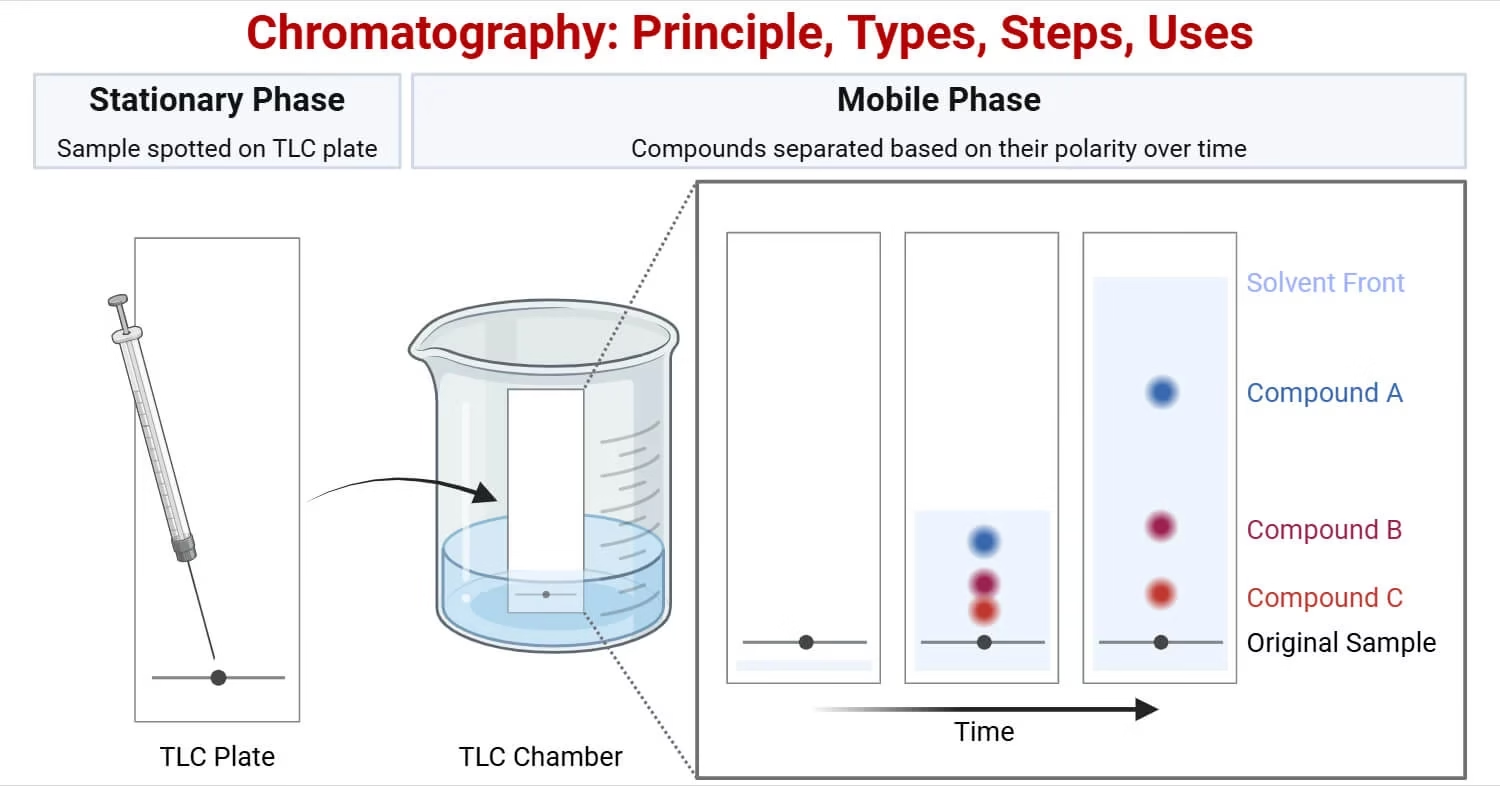Column Chromatography – Definition, Principle, Parts, Procedure, Applications, Advantages & Limitations
Column Chromatography is one of the most important methods used in biochemistry, analytical chemistry, and biotechnology for separating and purifying components of a mixture.


